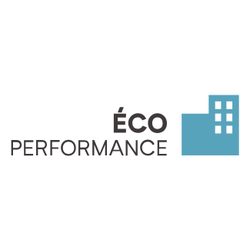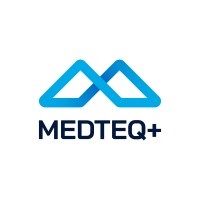
Closed
New Mobility Assistance Program (NOMO) – Stream 1
Last Update: October 27, 2025
QC, Canada
Supports sustainable mobility solutions through integrated technology and planning
Grant and Funding
At a glance
Funding available
Financing goals
Reduce the ecological footprint
Develop strategic partnerships
Increasing community impact
See more
Eligible Funding
- Maximum amount : 1,500,000 $
- Up to 75% of project cost
Timeline
- Receipt of requests is now closed
Eligible candidates
Eligible Industries
- Transportation and warehousing
- Professional, scientific and technical services
- Educational services
- Health care and social assistance
- Other services (except public administration)
- Public administration
Location
- Quebec
Legal structures
- Financial cooperative
- Non-profit
- Public or Parapublic institution
- Social economy enterprise
- Non-financial cooperative
Annual revenue
- All revenue ranges
Organisation size
- All organization sizes
Audience
- Indigenous Peoples
- 2SLGBTQI+
- Women
Non-profit candidates
Sector of operation
- Research
- Environment
- Economic, Social and Community Development
- Employment and Training
Target groups
- General public
- People with disabilities
- Rural / Remote communities
Revenue structures
- All structures
Scope
- Local
- Municipal
- Regional
- Provincial
Overview
The New Mobility Assistance Program (NOMO) – Stream 1 offers up to $1,500,000 in government funding to support the development and implementation of integrated and connected mobility solutions in Quebec. Eligible activities include feasibility studies and pilot projects for digital platforms or applications that improve access to sustainable and shared transportation services.
Activities funded
- Feasibility studies for the deployment of integrated mobility service platforms.
- Pilot projects to implement technological platforms that integrate at least two sustainable mobility services (e.g., public transit, car sharing, bike sharing, demand-responsive transport).
- Development and roll-out of digital applications (mobile or web) to enhance access to sustainable and shared mobility services.
- Creation of business partnerships and collaborative models to deliver new or better-integrated mobility offerings.
- Projects aimed at making existing and future mobility services more accessible and better adapted to citizens' needs through technology integration.
Examples of admissible projects:
$ 59,000
Acquisition of CNC machinery to scale custom wood furniture
$ 44,000
Modernizing non-profit’s community kitchen and training equipment
$ 50,000
Installing rooftop solar panels to offset bakery energy needs
$ 49,900
Upgrading cold storage for local organic vegetable preservation
$ 32,500
Implementing cloud-based POS system for independent bookstore
$ 39,000
Replacing aging delivery van with electric vehicle for flower shop
Eligibility
- The applicant must be a municipality, regional county municipality (MRC), grouping of municipalities, metropolitan community, paramunicipal corporation, local transport authority, public transit corporation, the ARTM, the RTM (exo), non-profit organization, cooperative, or social economy enterprise.
- Non-profit organizations, cooperatives, and social economy enterprises must have their head office or an establishment in Quebec and demonstrate expertise in sustainable mobility projects.
- Projects must involve either a feasibility study for a mobility integration platform or a pilot project for the implementation of such a platform connecting at least two mobility services.
- All applicants must demonstrate compliance with legal and regulatory requirements and not be in bankruptcy, insolvency, or listed in the Register of non-eligible enterprises for public contracts (RENA).
Who is eligible?
- Municipalities, regional county municipalities (MRCs), groupings of municipalities, and metropolitan communities
- Borough councils or agglomeration councils, subject to applicable legislative competency sharing
- Parapublic corporations (sociétés paramunicipales)
- Local public transit authorities, public transit corporations, the Autorité régionale de transport métropolitain (ARTM), and the Réseau de transport métropolitain (exo)
- Non-profit organizations (NPOs), cooperatives, and social economy enterprises with a partnership with a local transit authority, public transit corporation, MRC, or municipality
Who is not eligible
- Private companies (for Stream 1 only)
- Ministries and organizations of the Québec government listed in Schedules 1 and 2 of the Financial Administration Act
- Government enterprises of Québec listed in Schedule 3 of the Financial Administration Act
- Federal ministries and government organizations
- Entities or persons designated by the National Assembly
- Organizations in bankruptcy or insolvency
- Entities that have defaulted on prior financial commitments with the Ministère des Transports in the past two years, after formal notice
- Organizations listed on the Register of Enterprises Ineligible for Public Contracts (RENA)
Eligible expenses
- Salaries and social benefits for internal staff and project partners working directly on the project.
- Professional fees, including validation, verification, and financial audit services.
- Travel, accommodation, and meal expenses within Quebec according to government rates.
- Intellectual property rights costs.
- Costs for acquiring or renting equipment, materials, and supplies necessary for the project.
- Costs for developing or updating project-related websites and digital platforms (including design, development, and enhancements).
- Acquisition of data processing hardware and software needed for the project.
- Cost of documentation, publication, and dissemination of project results.
- Urban furniture and dedicated space arrangements to implement or improve mobility services.
- Direct project-related capital expenditures.
- Communication and marketing expenses for project awareness and user engagement.
- Costs for implementing user support services during pilots.
- Project-related administration fees (up to 15% of eligible expenses).
- In-kind contributions (up to 10% of eligible expenses).
- Specific to platform pilot projects: independent project manager salaries, legal fees for partnership agreements, technology acquisition or upgrade (platforms, apps), platform licensing and equipment (e.g., onboard devices), and creation or enhancement of physical support infrastructure such as charging stations and reserved parking for electric or micromobility vehicles.
- For mobility management plan implementation: costs for purchasing bike racks, bicycles, electric bikes, bicycle repair stations, trial transit passes (up to 12 months), construction/renovation of infrastructure supporting sustainable mobility (e.g., secure bike parking, facilities for active commuters), organizing cycling workshops, and signage for sustainable mobility equipment.
Eligible geographic areas
- Organizations with their head office or establishment located in Quebec.
Selection criteria
- Relevance and scope of the project (objectives, covered territory, number of mobility services considered, technological solutions, methodology, and involvement of relevant stakeholders). (Up to 60 points for feasibility studies)
- Quality of the project team (expertise and experience of the project manager and team members, number of assigned resources, organizational track record, and years of existence), and soundness of financial planning. (Up to 25 points for feasibility studies; up to 20 points for pilot projects)
- Clarity and quality of the application file. (Up to 15 points for feasibility studies)
- Interoperability and technological quality of the project, including the ability to exchange data with other systems using recognized standards. (Up to 30 points for pilot projects, minimum 20 points required)
- Potential structuring impact, social, environmental, and economic benefits (e.g., number of mobility services integrated, impact on region). (Up to 40 points for pilot projects)
How to apply
1
Ensure eligibility for the program
- Review the eligibility criteria for admissible organizations and projects under Stream 1
- Confirm your type of organization and project align with program requirements
- Verify that your organization is not ineligible (e.g., not in bankruptcy, not listed in RENA, etc.)
2
Prepare application documents
- Gather all required documents and information as listed in the program guidelines
- Prepare a full project description aligned with program objectives, including technical details, partnerships, territory, and expected outcomes
- Compile administrative, financial, and legal documents requested by the program
3
Submit the application
- Fill out the application form according to the program’s requirements
- Ensure all documentation is completed and accurate
- Use the organization’s official email to send documents
- Include “NOMO” and the stream number in the subject line
- Submit during the call for projects period announced on the Ministry website
4
Await evaluation and response
- Wait for the project to be reviewed by the evaluation committee
- Applications are analyzed and ranked according to specific scoring criteria
- You will receive written notification regarding acceptance or rejection
5
Sign agreement and receive initial funding
- If accepted, sign the agreement outlining the terms and obligations
- Receive the first payment (80% of grant amount) upon signature
6
Execute and monitor the project
- Implement the project according to the approved plan and timeline
- Maintain all supporting documents and records for at least five years
- Comply with progress reporting requirements and program obligations
7
Submit final report and receive balance
- Submit a final report with required data and supporting documents
- Report must include project results, outcomes, and financial details
- The Ministry will review the final report for compliance and completion
- Receive the final payment (remaining 20%) after acceptance of the report
Additional information
- Beneficiaries are required to retain all supporting documents related to their application for a period of five years.
- The beneficiary must publicize the financial support received from the government of Quebec in all public communications about the project.
- The Minister reserves the right to reduce, cancel, or demand reimbursement of the grant if program conditions are not met or in case of false declaration.
- The program administrator may require additional information for reporting and evaluation purposes during and after project implementation.
Contacts
1-888-355-0511
QC, Canada
Apply to this program
Frequently Asked Questions about the New Mobility Assistance Program (NOMO) – Stream 1 Program
Here are answers to the most common questions about the New Mobility Assistance Program (NOMO) – Stream 1. This section explains what the program is, how much funding is available, eligibility requirements, application deadlines, and other important details to help you determine if this grant is right for your business.
What is the New Mobility Assistance Program (NOMO) – Stream 1?
How much funding can be received?
Who is eligible for the New Mobility Assistance Program (NOMO) – Stream 1 program?
What expenses are eligible under New Mobility Assistance Program (NOMO) – Stream 1?
Who can I contact for more information about the New Mobility Assistance Program (NOMO) – Stream 1?
Where is the New Mobility Assistance Program (NOMO) – Stream 1 available?
Is the New Mobility Assistance Program (NOMO) – Stream 1 a grant, loan, or tax credit?
Apply to this program
More programs like this

Tax CreditsOpen
Research, Innovation and Commercialization Tax Credit (CRIC)
Gouvernement du QuébecRefundable tax credit for Quebec business R&D and precommercialization

Grant and FundingOpen
ÉcoPerformance — Recommissioning of building mechanical systems
Gouvernement du QuébecFunding to optimize the operation of building mechanical systems

Grant and FundingClosed
NovaScience Program - Support for projects in scientific culture and innovation
Gouvernement du QuébecNovaScience promotes scientific culture and innovation development

Grant and FundingOpen
Ecocamionnage Program — Logistics Project Component
Minister of Transport and Sustainable Mobility of QuebecGreenhouse emission reduction aid for freight transport

Grant and FundingClosed
Community Organization Support Program (PSOC)
Department of Health and Human ServicesSupports Quebec community organizations in health and social services

Tax CreditsOpen
Tax holiday for a new business created to commercialize intellectual property
Ministère de l'économie, de l'innovation et de l'énergie du Québec (MEIE)Tax credit for commercialization of intellectual property (IP) in Quebec

Grant and FundingOpening Soon
Flood Resilience and Adaptation Program (PRAFI) - Resilient Development Component
Ministry of Municipal Affairs and HousingSupports municipal flood resilience and adaptation infrastructure projects

Grant and FundingOpening Soon
Flood Resilience and Adaptation Program - Community Resilience and Relocation Component
Ministry of Municipal Affairs and HousingSupports municipal relocation and resilience projects in flood-risk areas

Grant and FundingOpen
ÉcoPerformance — Standard Analysis Stream
Gouvernement du QuébecSupports feasibility analyses to reduce greenhouse gas emissions

Grant and FundingOpening Soon
MEDTEQ+ — AVISÉ program
Consortium de recherche et d’innovation en technologies médicales du QuébecFunding for validation and evaluation of innovative health technologies
Sign up to our platform to access the New Mobility Assistance Program (NOMO) – Stream 1 information sheet for free
Get access to 4,000+ programs, practical guides, personalized alerts, and an AI assistant to support your grant applications.